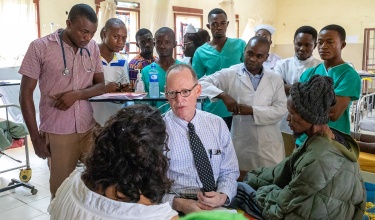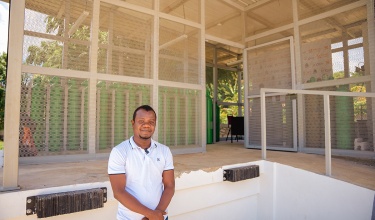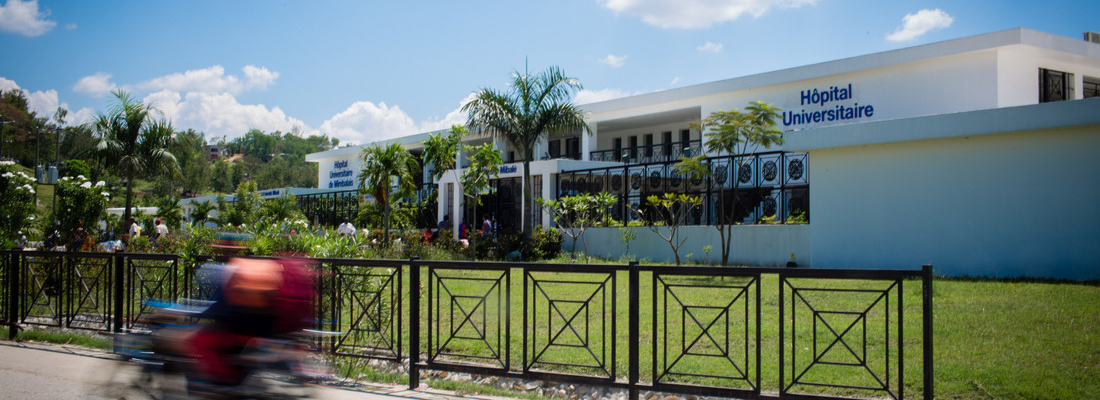

Haiti
Haiti
Throughout its history, Haiti has experienced many challenges, from political turmoil and lack of economic development to natural disasters and postcolonial exploitation. The country has struggled to build and sustain strong public systems, among them a health system with adequate staffing, supplies, and infrastructure to meet the needs of the most remote and marginalized communities.
Zanmi Lasante(ZL), a sister organization to Partners In Health in Haiti, was founded in the early 1980s to respond to these health needs in the rural community of Cange and has since expanded to a network of 15 clinics and hospitals across the Central Plateau and lower Artibonite, two of the country’s most underprivileged and remote regions. Zanmi Lasante has become Haiti’s largest health care provider outside of the government, working in close relationship with the Haitian Ministry of Health, and serves a population of more than 3.3 million people. In Haiti, PIH employs more than 6,300 staff, including 2,500 community health workers, to provide primary care, maternal and child health care, HIV and tuberculosis services, and more advanced secondary and tertiary care.
Our Impact
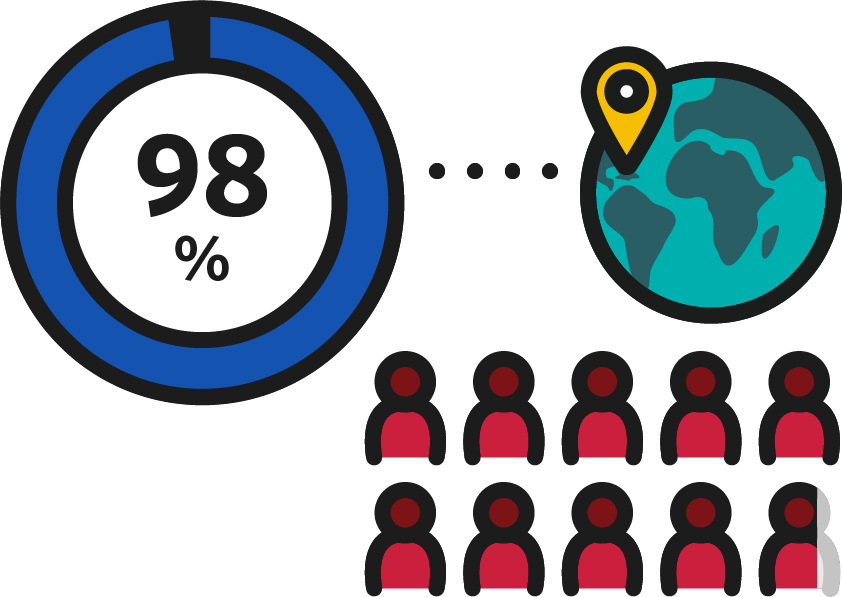
98% of graduates from medical residency program stay to work in Haiti.
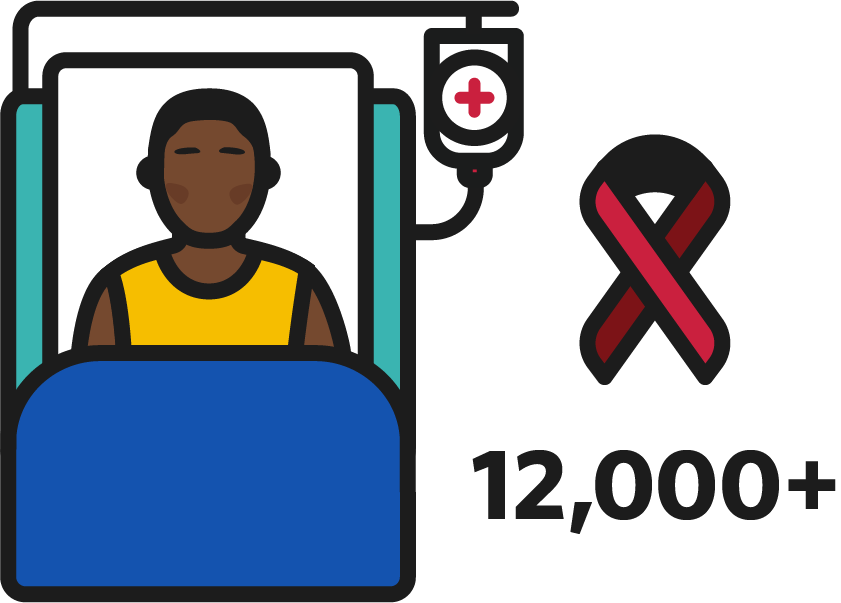
More than 12,000 patients living with HIV receive care at PIH-supported facilities in Haiti.
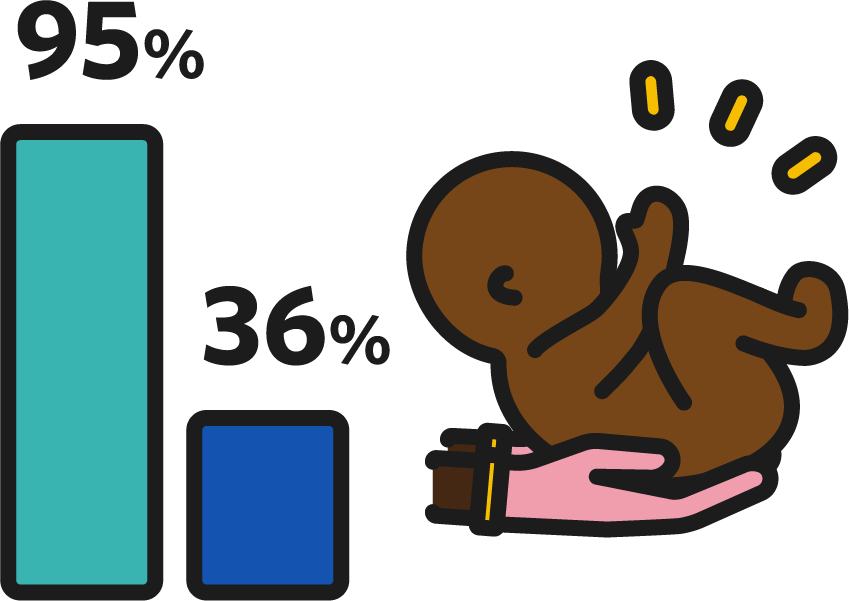
Each day, 95% of women in Journey to 9 Plus program have facility-based deliveries vs. 36% nationwide.
Innovations in Care
PIH pioneered the use of community health workers to deliver quality health care to people living with chronic diseases, such as HIV and TB. In 1998, we launched the world’s first program to provide free, comprehensive HIV care and treatment in an impoverished setting. Our HIV Equity Initiative is now a global model for the treatment of complex diseases in community settings.
Maternal and Child Health
Haiti has the highest rate of maternal mortality in the Western Hemisphere, with an estimated 529 deaths for every 100,000 live births. Recognizing this injustice, PIH has prioritized since its early days the provision of quality maternal health care for expectant mothers arriving at our clinics and hospitals.
PIH’s women’s health division in Haiti, or Sante Fanm, was the first such program in Haiti’s Central Plateau and includes services such as prenatal care, family planning, and sexually transmitted disease detection and treatment. We provide labor and delivery care for an average of 1,500 women per month and, in 2019, we averaged over 15,000 family planning consultations each month.
Specifically, the Journey to 9 Plus program provides a care package of four key services to expectant mothers: group prenatal and pediatric care, psychosocial services, home visits, and hospital-based services. The program aims to end maternal deaths from childbirth and infant mortality through early detection of complicated pregnancies, facility-based deliveries, and routine well-baby visits.
Malnutrition
Roughly 1 in 5 children are chronically malnourished in Haiti, and 40 percent experience stunting because they do not have enough food to eat on a daily basis, causing long-term development challenges. In response, PIH established malnutrition clinics across 13 clinics and hospitals we support across the Central Plateau and lower Artibonite. There, children are screened and prescribed lifesaving medicine called Nourimanba, following World Health Organization standards.
Nourimanba is a high-calorie, high-protein paste made from locally grown peanuts and mixed with lifesaving vitamins and minerals. This ready-to-use therapeutic food—produced at PIH’s Nourimanba Production Center—helps children gain weight and grow quickly over the course of several weeks of treatment. On average every year, PIH enrolls 7,800 children in malnutrition services across its network.
Mental Health
The PIH mental health team in Haiti delivers safe, effective, and culturally sound services through well-trained clinicians, community health workers, and social workers who tend to the needs of patients living with depression, psychotic disorders, post-traumatic stress, and a variety of other conditions. Each year, the mental health team in Haiti provides care for over 2,100 patients, conducting more than 7,600 mental health visits at health facilities.
University Hospital in Mirebalais
In 2013, PIH opened University Hospital of Mirebalais, a 205,000-square foot, 300-bed teaching facility in an area that previously had few options for access to quality health care. The hospital offers advanced care across multiple specialties, including a full-service emergency department, critical care units, oncology, general and orthopedic surgery, among many others. It also brings services previously unavailable in Haiti’s public system, including digital imaging and a portable CT scanner, an open-source electronic medical records system, and high-tech classrooms to train the next generation of Haitian doctors and nurses.
University Hospital, which received international accreditation as a teaching institution in 2019, is home to six residency programs, from general surgery and internal medicine, to pediatrics and emergency medicine. Through residency and training programs in Mirebalais and in Saint Marc, PIH is providing high-quality training to increase the number of well-trained clinicians working in Haiti.
Featured Haiti Videos
Learn more about Zanmi Lasante, by visiting their website:

